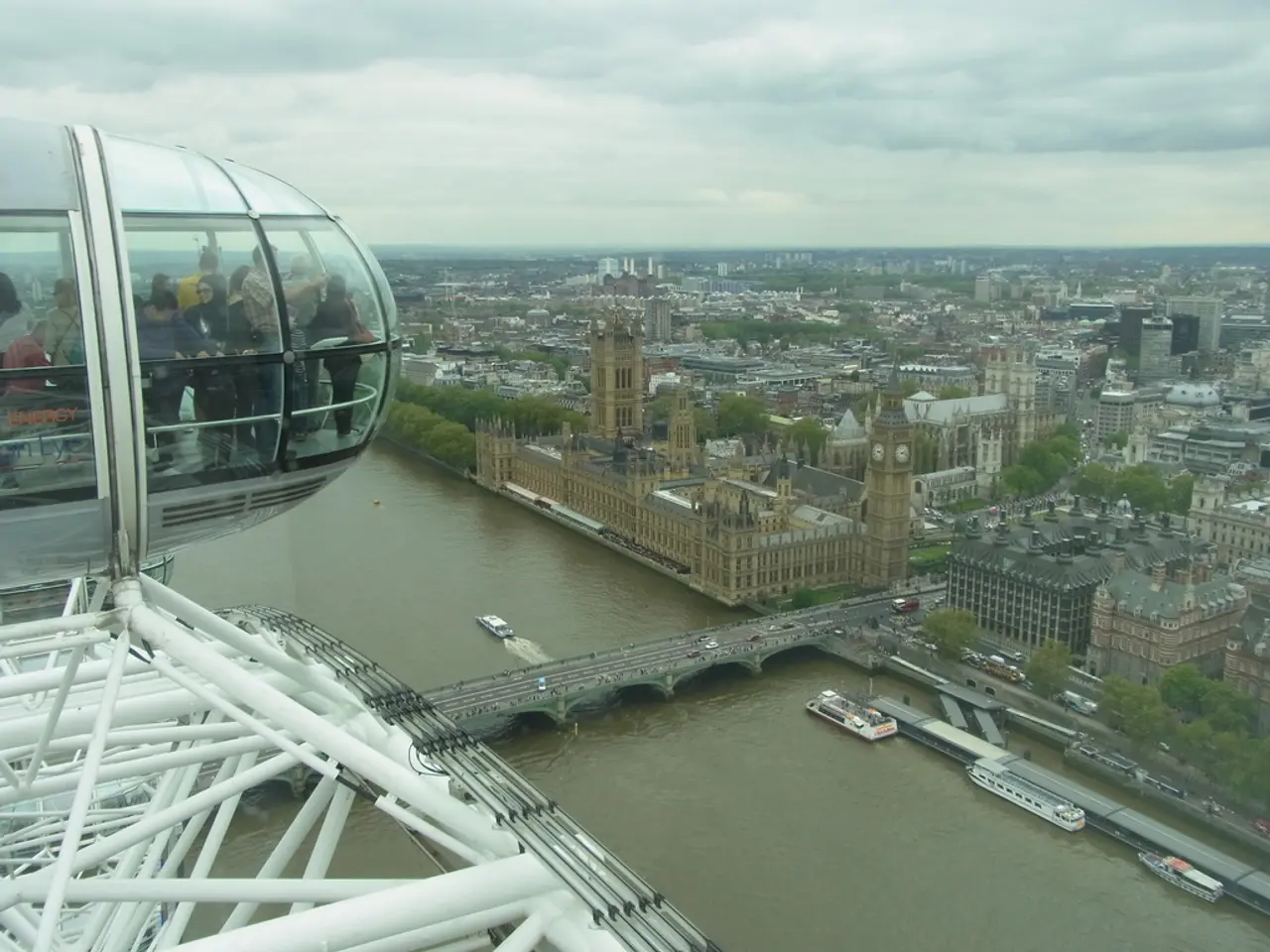Britain's economy receives a boost as Rachel Reeves cut through bureaucratic barriers
England's economic growth plans, unveiled by Chancellor Rachel Reeves on Wednesday, 29 January, focus on the Oxford-Cambridge Arc and airport expansion projects, aiming to boost productivity, connectivity, and sustainable development.
The government has committed £2.5 billion at the 2025 Spending Review to support the delivery of East West Rail, a key infrastructure project enabling improved transport linkages along the Oxford to Cambridge Corridor. This investment aims to enhance connectivity between economic hubs in the region and stimulate growth in the high-tech and innovation sectors typical of the corridor.
The Oxford-Cambridge Arc is a strategic focus to stimulate economic growth by improving transport infrastructure, supporting new housing and commercial developments, and boosting productivity across this critical corridor linking two world-class university cities and associated innovation ecosystems.
While precise projects on airport expansion were not detailed, the government announced significant new investment plans to enhance infrastructure including road and rail projects across England and Wales. These improvements are expected to improve transport connectivity and support economic growth, including schemes that will better connect communities to major transport hubs such as airports.
For example, investments in major road improvements like the M54 to M6 Link Road will support better access to transport infrastructure, which indirectly benefits airport expansion by improving logistics and commuter access.
The chancellor also expressed hopes for a move to zero-or low-emission aviation and highlighted investments in sustainable aviation fuel as a means to change carbon emissions from flying. Moreover, the Environmental Agency has lifted objections to new developments going up in Cambridge, potentially paving the way for significant growth in the region.
The new scheme could add £78bn to the economy by 2035 and create 4,500 new homes, offices, and schools. Connecting Oxford and Cambridge could create 'Europe's Silicon Valley'. However, the plans face criticism from environmental groups, who argue that the government could achieve growth without hindering climate goals.
Despite challenges such as modest GDP growth projections, higher employment costs, inflation pressures, and global uncertainties, government-led investment in infrastructure, including the Oxbridge Arc and transport links, is seen as critical to sustaining long-term economic progress and regional development. The new scheme for a third runway at Heathrow Airport, which would increase the number of flights from the current level of around 480,000 per year to 720,000, has also received government backing.
In summary, England’s new economic growth plans include a £2.5 billion commitment to East West Rail within the Oxford-Cambridge Arc to improve high-tech corridor connectivity alongside multiple government-backed road and rail projects across England that will support airport access and broader infrastructure needs. These initiatives aim to boost regional productivity and connectivity amidst a slowly growing economic environment challenged by inflation and labor market pressures.
Innovation in the high-tech sectors of the Oxford-Cambridge Arc could be stimulated with the enhanced connectivity provided by the East West Rail project, which is supported by the government's £2.5 billion investment. The new housing and commercial developments in the Arc could also contribute to this innovation ecosystem.
The government's plans for airport expansion, such as the new runway at Heathrow Airport, could lead to an increase in flights, potentially facilitating easier travel for sports events or business meetings, further boosting innovation and economic growth.








